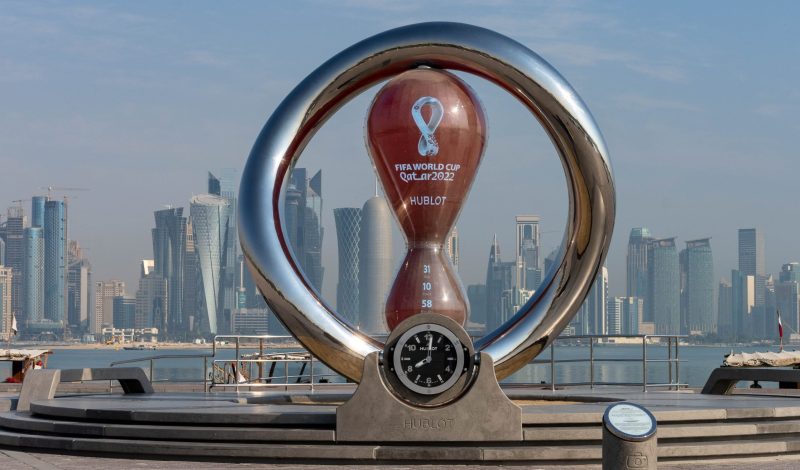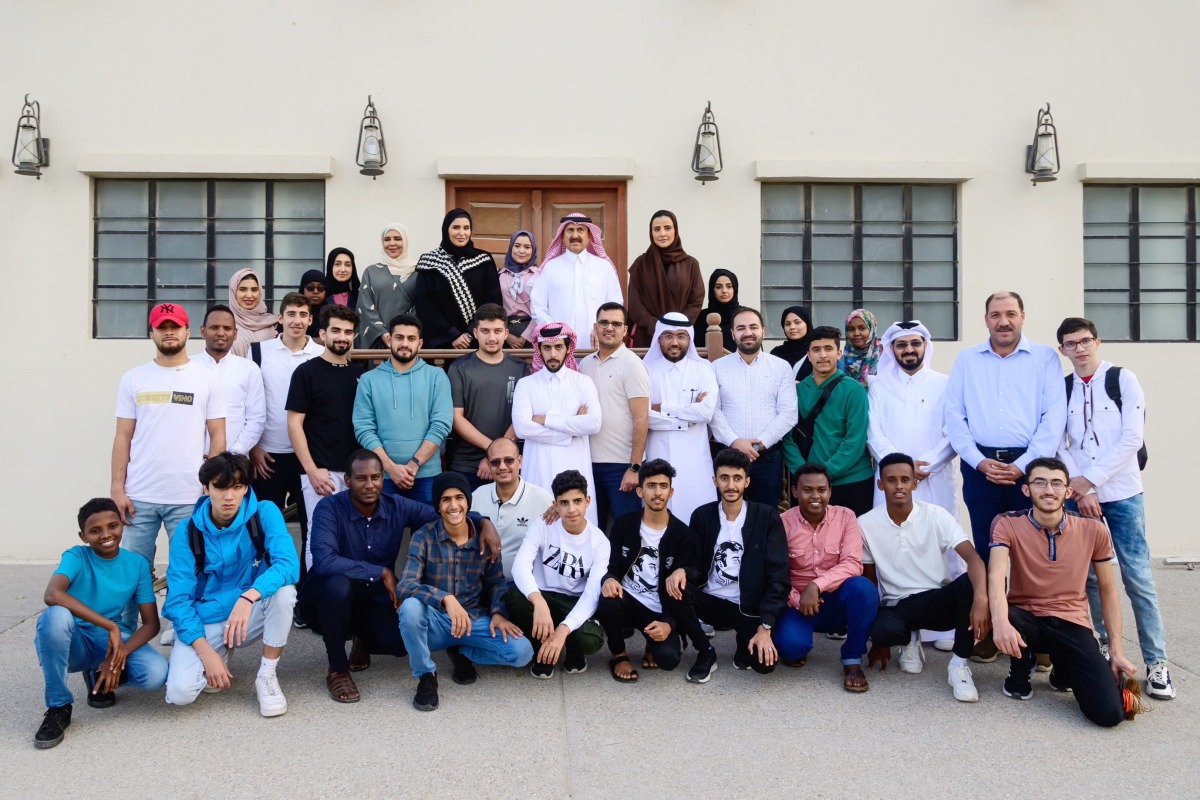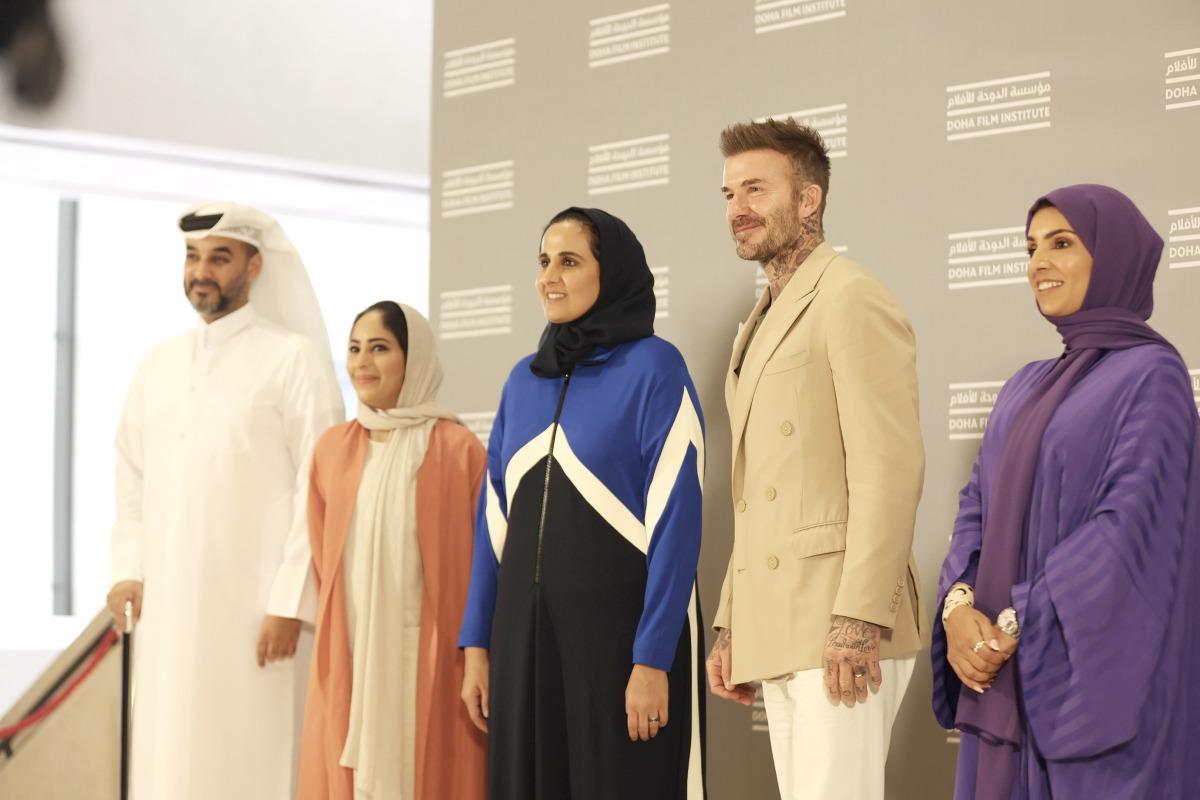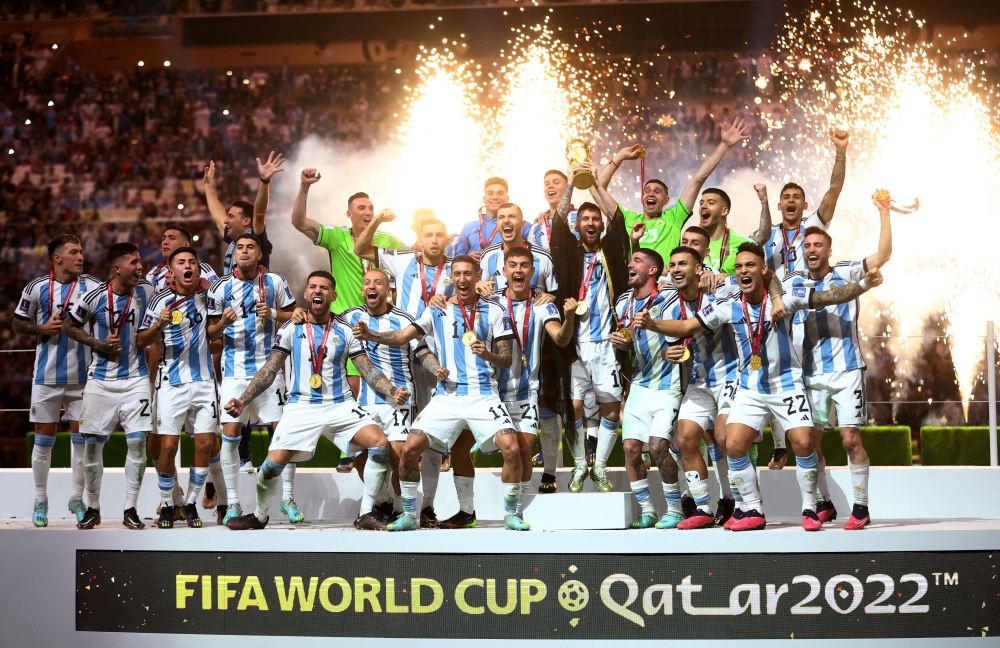Qatar received the honor of hosting the first-ever FIFA World Cup in the area more than ten years ago. The Gulf country swiftly mobilized to launch massive projects in order to get ready for the biggest athletic event in history, which would bring more than a million tourists to the nation for the first time.
The Gulf state has transformed its fabric as part of its preparations, amending its legislation to address concerns about migrant workers’ rights.
However, despite this, Qatar has faced a mass misinformation campaign, enduring a slew of attacks from the western world, much of which has refused to acknowledge progress made on the ground.
Over the last decade, Doha has continued to actively address ongoing violations of migrant worker rights and has pumped up inspections and enhanced transparency when it comes to breaches.
In recent weeks and as the World Cup looms around the corner, officials have taken on a more striking approach in a last bid attempt to hit back at the anti-Qatar media campaign.
The country’s Amir Sheikh Tamim bin Hamad Al Thani as well as other top Qatari officials have also repeatedly slammed “racism” behind the campaigns. Just last month, the Amir described the campaigns as “ferocious” and questioned the intentions of critics.
Doha says the criticism has appeared to drift from issues that initially centered on migrant workers rights to outright ‘sensationalism’.
Here are the most common inaccuracies that have been reported about Qatar in the lead up to the World Cup.
Misleading Amnesty statistics
On Saturday, Bundesliga fans staged a protest against the upcoming World Cup in Qatar, displaying a huge banner that translates to ‘15,000 dead for 5,760 minutes of football. Shame on you.’
Western media was fast to report on it, but as usual, little was done to break down the numbers to clarify just how misleading it was.
The 15,000 death toll on the banner comes from Amnesty International’s latest report in Qatar, which states that this accounts for the total number of deaths of all non-Qataris of all ages and occupations between 2019 and 2020.
This means that 15,000 non-Qataris died in the country over the span of 9 years in total, due to a range of reasons, including natural causes, chronic illness or even traffic accidents – not entirely World Cup related.
This makes the bold ‘15,000 dead for 5,760 minutes of football’ statement simply inaccurate and a massive misreporting of facts that have fed the anti-Qatar media campaign in the lead up to the World Cup.
Marc Owen Jones, Associate Professor at Hamad Bin Khalifa University, did the maths in a thread posted onto his Twitter account.
“15000 deaths over a nine year period from a population of approximately 2.3 million (non Qataris) equates to a death rate of 1 per 1000 per year (15,000/9/ pop x 1000 of each year since 2010 – which ranges from 1.7 mill in 2010 to 2.9 mill in 2019). For comparison, death rate in EU is 12 per 1000, India is 7,” he said.
On the contrary, the figure actually indicates one of the lowest death rates worldwide. The original Amnesty International report concentrated on the crucial problem of “unexplained deaths” and inadequate death reporting, which makes it difficult to ascertain an accurate cause of death.
“Reporting would give more accurate ways of determining occupational deaths or avoidable deaths, 15,000 without context, or adjustment for various demographic elements, is just misleading information that, ironically, gives one of the lowest mortality rates in the world,” Jones added.
‘Deceptive’ Guardian report
One of the most notorious headlines that targeted Qatar with little to no context or background information was from an article by the UK-based news organisation, The Guardian.
In 2021, the British publication released a dubious article under the headline, “Revealed: 6,500 migrant workers have died in Qatar as it gears up for World Cup.”
The article purported to blame the “shocking” death rate of Qatar’s whole South Asian community on the World Cup, essentially suggesting that all of those who carry South Asian citizenship work are migrant workers employed on projects for the tournament.
“More than 6,500 migrant workers from India, Pakistan, Nepal, Bangladesh, and Sri Lanka have died in Qatar” since it won the right to host the World Cup 10 years ago, the report claimed.
In reality, the statistics, obtained from respective embassies in Doha, did not include just migrant workers, but rather the total number of all deaths of nationals of India, Pakistan, Bangladesh, Nepal and Sri Lanka, across all occupations.
They also included those who passed away due to natural causes, chronic illness or even traffic accidents.
However, the journalist simply assumed that all South Asians who died in Qatar since December 2010 were migrant workers— a statement many critics said was in itself racist.
LGBTQ activist ‘detained’ in Qatar
Last month, British activist Peter Tatchell falsely claimed he was arrested and detained by local police after staging a one-man protest in front of Qatar’s National Museum.
Doha News personally spoke to Tatchell at the location of the protest, moments after the police walked away, where he continued to stand unharmed and without any officers in the area.
He told Doha News that he stood outside NMoQ for 35 minutes before state security came, followed by police officers. When asked whether he was taken away or handcuffed, he said no.
Tatchell said he was questioned about his nationality and travels to Qatar, and confirmed “the officers were polite and I’m grateful for that.”
His move was described by regional campaigners as a “publicity stunt” to draw negative attention to the country, though by then, western media had rolled out news of his alleged arrest before then changing their coverage to reflect the facts.
The incident occurred on the same day that the amir, Sheikh Tamim bin Hamad Al Thani lamented “unfair” media coverage of the Gulf nation, saying “no other host nation” has faced this level of criticism.
‘Lies’ about life in Qatar
More recently, UK-based Telegraph published an opinion piece titled “I lived in Qatar and the speculations of police torture are no surprise – they bring back memories”, depicting the Gulf state as a less-accepting nation.
However, a post shared by the UK outlet on Instagram appeared to offer a different headline: “‘I couldn’t hold my husband’s hand without being hissed at’: What it’s like to live in Qatar”.
British author Lorna Gibb wrote the piece based on her one-year experience in Doha as a Qatar University professor between September 2007 and June 2009, per information on her Linkedin profile.
She claims she was “hissed at” in “disapproval from passers-by” for holding her husband’s hand in the streets while living in the Gulf state, and alleged she was unable to “meet a male colleague for a coffee in a cafe”.
The allegations were quickly dismissed by thousands of residents and citizens of Qatar, many of whom said they have lived in the Gulf state for decades. They debunked the claims as “outright lies” and “fabrications”.
Khalifa Al Haroon, Founder and CEO of the I Love Qatar (ILQ) Network, hit back at the article on Twitter for its inaccuracies.
“The UK media propaganda machine is on overdrive… it’s gone from twisting facts to straight up lies… a man can’t hold his wife’s hand?? Since when?? Women and Men can’t hang out in cafes together ?? Dear expats following this, can you comment down below on this?” said Al Haroon, also a Qatari citizen.
On Instagram, Al Haroon debunked Gibb’s claims, saying he publicly holds his wife’s hand all the time while clearly identifying as a Qatari in his traditional white thobe. He also dismissed the claim that men and women are not allowed to meet up in public settings, including cafe’s and restaurants.
“Hope you don’t judge an entire country by the actions of few. That’s called racism,” he said.
Meanwhile, Khalid Albakri, a Qatari diplomat said: “It’s truly ignorant and pathetic that people are stooping this low for attention. I am from Qatar and see many people holding hands without any discomfort or disapproval[…]hate has no home here”.
‘Most expensive World Cup’ in history
Perhaps one of the most common and reported misinformation is that Qatar’s edition of World Cup is the “most expensive” in history. Just like many of the other headlines in the media campaign, there’s more to the figure than what was reported.
While reports say Qatar has spent $220 billion on the World Cup, officials from the Gulf state say otherwise.
The actual amount spent on World Cup projects and expenses, according to
Nasser Al-Khater, CEO of the Qatar 2022 World Cup, says the actual amount spent on World Cup projects and expenses is actually closer to $8 billion.
However, Qatar has invested tens of billions of dollars in infrastructure, such as new airport terminals, ports, roads as well as a metro and tram system, all of which are part of its long-term development plan.
The Qatar National Vision 2030 was finalised years before Qatar won the bid to host the 2022 World Cup back in 2010.
Compared to other countries, the direct spending on the tournament is close to the last two FIFA events. According to official statistics, Brazil spent about $15 billion to host the 2014 World Cup, while Russia spent $11.6 billion hosting the most recent World Cup in 2018.
Qatar ‘paying’ fans for good World Cup PR
Over the last few weeks, initial reports by western media outlets claimed Qatar paid for fans from around the world to visit the country for what it described as “good PR”.
The report was based on the Supreme Committee for Delivery & Legacy’s Fan Leader Network, which is designed to engage and directly communicate with football fans from different parts of the world.
Comprising more than 450 individuals from 59 nations, the network provides members with the opportunity to experience the true spirit of sports.
“We have been able to understand how fans from a vast variety of footballing cultures enjoy sporting events and offered them direct access to tournament organisers to share their feedback and ask questions about the tournament and host country,” the SC told Doha News.
However, the SC dismissed the allegations, saying the invitees were not paid but had their expenses covered.
The members have personally volunteered and “expressed an interest in learning more about the tournament and the host country,” the SC noted.
‘Chilling’ restrictions on World Cup media coverage
In October, the Guardian released a report claiming that international media will not be allowed to film interviews with migrant workers, and that they must not produce reports that are “inappropriate or offensive to the Qatari culture, Islamic principles” or face criminal liability.
The report points to “chilling” media regulations on world media covering the World Cup – a claim denied by authorities in Doha.
“In line with common practice all over the world, filming on private property is allowed, but requires consent from the owner or responsible entity for the property,” an SC statement read.
“Several regional and international media outlets are based in Qatar, and thousands of journalists report from Qatar freely without interference each year.”
Qatari authorities said they have in fact updated an earlier version of this policy to ease the rules for World Cup broadcasters, including removing a rule that said they must “acknowledge and agree” that they will not produce reports that are “inappropriate or offensive to Qatari culture, Islamic principles.”
The Guardian report, which has since been amended to reflect statements from Qatar officials, claimed that “while the newer rules say filming is allowed across the state of Qatar, they still appear to impose strict restrictions, including that by applying for a permit, broadcasters agree “not to capture film/photography at excluded locations”.
Responding to the reports, a FIFA World Cup Organisational Committee spokesperson responded to the criticism and said that the terms and conditions for this year’s World Cup are not any different from those in the past.
“In previous World Cups, press credentials’ terms and conditions have been similar to the ones issued for this year. During praxis is where things will change. All media outlets will be able to execute their journalistic faculties freely,” the spokesperson told sports media Marca.
Further, the spokesperson told Marca that a video journalist from any international media outlet will be able to report as long as they respect the privacy of Qataris. Before filming, local authorities encourage all media outlets to obtain permission.
However, the reporter can face legal repercussions for disturbing the peace by taking unauthorized photos of Qatari culture. This happens everywhere, according to the FIFA spokeswoman, and Qatar shouldn’t be an exception.
On social media, some journalists and media analysts provided justifications for why they thought the Guardian’s coverage might not have been factual.
“Nowhere in the world does a general film license provide access to private property. Even the landlord cannot grant your request; you need the resident’s consent. According to a tweet, you ask management for permission to do things like go to school.

















Leave a Reply